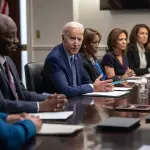The former chairman of the University of Pennsylvania, Scott Bok, is making waves by declaring that wealthy donors should not have a say in how the university is run. Bok, who recently resigned from his position, argued that while donors are free to give or withhold their contributions, they should not have a significant influence on campus policies or what is taught.
Ousted UPenn board chair says donors shouldn't decide policy after contributions pulled over school's handling of antisemitism https://t.co/PwgI7yp8DR via @nypost
— Bo Snerdley (@BoSnerdley) December 28, 2023
Bok’s stance has stirred up controversy, especially after several prominent donors pulled their support for the university over its handling of antisemitic incidents. Wall Street bigwig Apollo Management CEO Marc Rowan spearheaded the effort to withdraw donations, even calling for Bok and the former university president, Liz Magill, to resign.
The donors’ efforts gained momentum after Magill failed to decisively condemn calls for the genocide of Jews on campus. This failure led to further criticism from notable figures like former Utah Gov. John Huntsman and Pennsylvania Governor Josh Shapiro, who expressed disappointment with the university’s response to antisemitism.
Rowan went so far as to suggest that the university has a broader “culture” problem, indicating a need for the board to address issues related to free speech and academic excellence. His push for more significant involvement from donors and the board has prompted backlash, with some claiming that trustees and donors are overstepping their bounds and endangering the principle of academic freedom.
Despite the mounting pressure from donors and public officials, Bok maintained that the university should not hastily alter its governance model due to a “very short-term crisis.” He emphasized that the focus should not be on tearing up a successful governance model that has made universities like Penn prestigious.
The situation at the University of Pennsylvania serves as a microcosm of the broader debate regarding donor influence and academic freedom. With tensions running high and the integrity of the university at stake, the institution faces a critical juncture in defining its future path.




